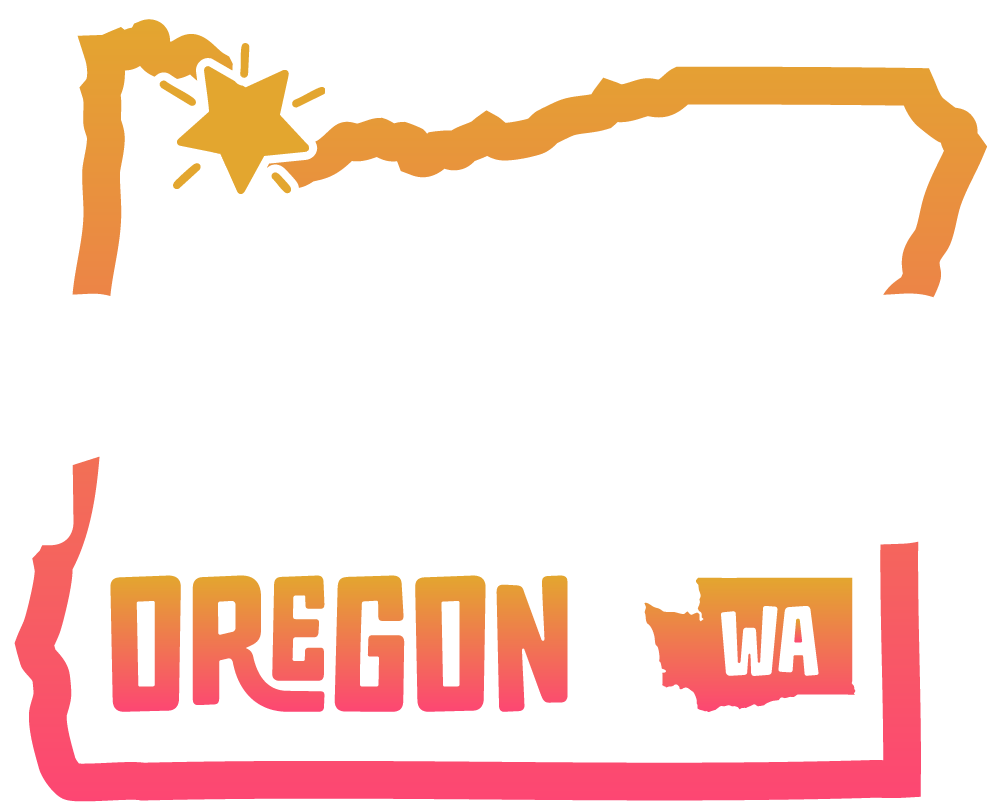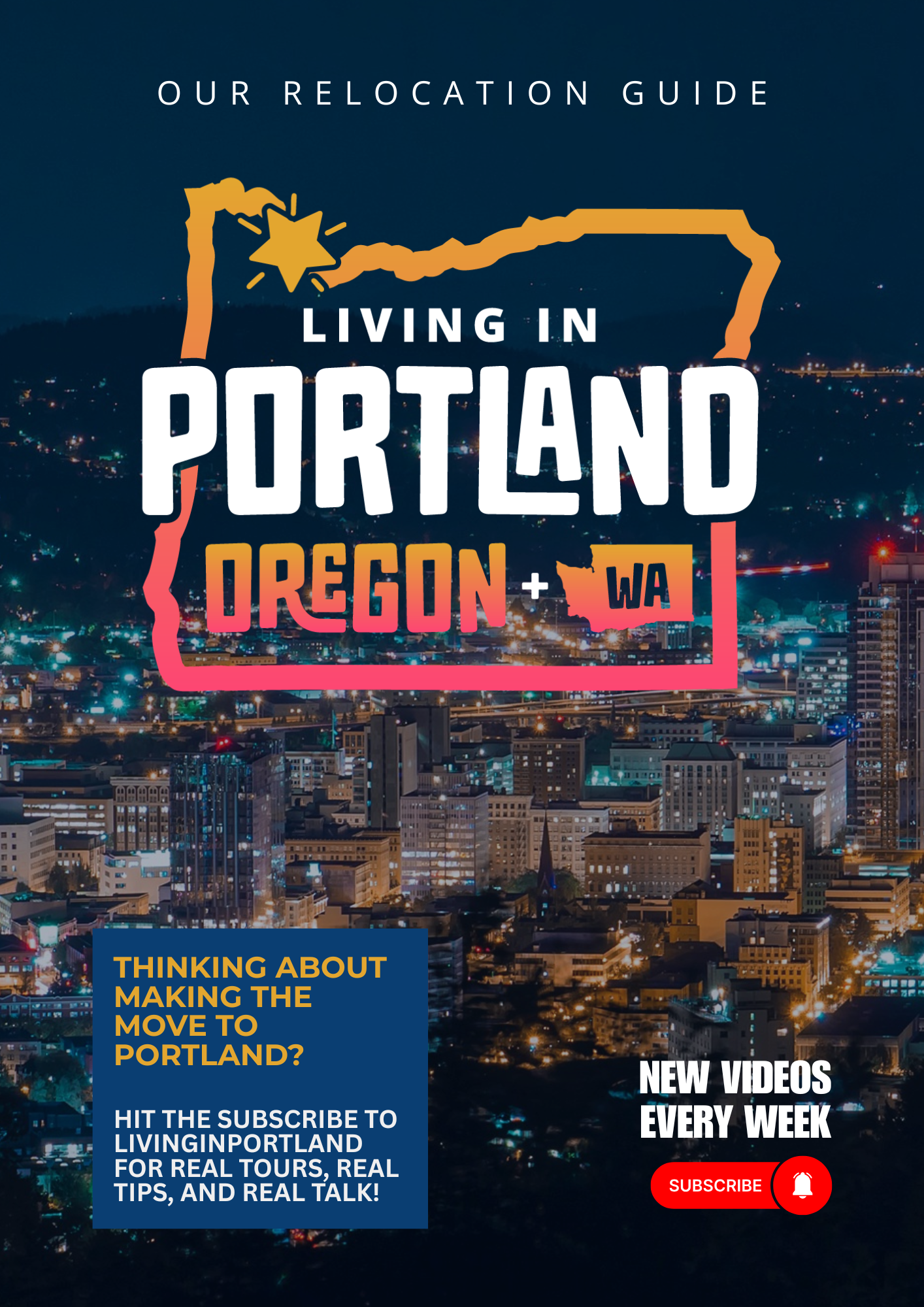Pros and Cons of Living in Portland Oregon — The Truth Nobody Talks About (2025 Update)
We put together this honest, boots-on-the-ground guide so you can weigh the pros and cons of Living in Portland Oregon before you make the move. In this updated 2025 edition I walk through weather, politics, traffic, safety, real estate, neighborhoods, and how we help people save tens of thousands when they buy. If you're researching the pros and cons of Living in Portland Oregon, this is a practical, local perspective—no fluff, just the stuff I wish people asked more often.
Table of Contents
- Introduction:
- Weather
- Mental Health: Seasonal Affective Considerations
- Travel & Day-Trip Advantages (A Big Pro)
- Politics: Context Is Everything
- Diversity & Vibe — A Major Pro
- Entertainment, Food, and Nightlife
- Safety: Inner City vs Suburbs
- Traffic & Commuting — Real Talk
- Portland Oregon Real Estate
- How Buyers Save in Portland: Builder Credits, Rate Buydowns & Incentives
- Architecture and Housing Diversity in Portland Oregon
- Best Portland Neighborhoods: Differences and Where to Live
- When to Visit Portland Before Moving
- How Our Portland Real Estate Team Supports Relocations
- Final Thoughts on the Pros and Cons of Living in Portland Oregon
- FAQs About Pros and Cons in Living in Portland, Oregon
- Wrapping Up: Is Portland the Right Place for You?
Introduction
If you're evaluating the pros and cons of Living in Portland Oregon, you’ve probably read travel pieces or watched a few clips that highlight either the charm or the problems. I’ve lived here my whole adult life and I help people relocate here every week, so I want to give you boots‑on‑the‑ground context you won't get from a national headline. The metro is huge and varied — inner‑city Portland (Multnomah County) feels very different from the suburbs and exurbs in Washington County, Clackamas County and Clark County (Vancouver, WA). Most people who move here buy in suburban neighborhoods or new planned developments, not downtown, so the stories you see on the news about “Portland” often don’t reflect where the majority of newcomers actually live.
There are a few practical threads that come up with nearly every client: weather (expect long gray stretches from roughly mid‑November to late May but great summers and now longer warm spells into the fall), commuting and micro‑market differences (overall 2025 trends favor buyers but some pockets remain very competitive), and the ease of escaping for sunshine — the coast, Mount Hood, and Bend are just a few hours away. Ask which county and which neighborhood — that one question changes almost everything — and if you’re serious about moving, visit more than once (ideally a sunny late‑summer/early‑fall trip and a winter visit) so you can see both sides of Portland life.
Weather
When people list the pros and cons of Living in Portland Oregon, weather always comes up first. We have four to five months of incredible weather, but the fall through spring can be gray and rainy. That overcast stretch—from about mid-November through late May—affects motivation for a lot of people. If you’re sensitive to seasonal depression, this weights heavily as a con.
On the other hand, summers have been shifting with climate change: later starts, stretches of warm weather into October and sometimes even early November. We now see heat spikes—short stints in the 90s or above 100°F occasionally—but they usually don’t last long. Snow is rare; when it does happen, the city tends to shut down because we aren’t designed for heavy snow removal.
Local tips for the weather
- Plan vacations during the gray months. A short drive to Bend or the coast gives you a totally different climate.
- If you need sunshine regularly, consider living closer to Central Oregon (Bend) or scheduling regular weekend escapes—Portland's airport has good direct flights to warm destinations.
- Visit during two different seasons before committing: a summer scouting trip and a winter trip so you can see both sides.
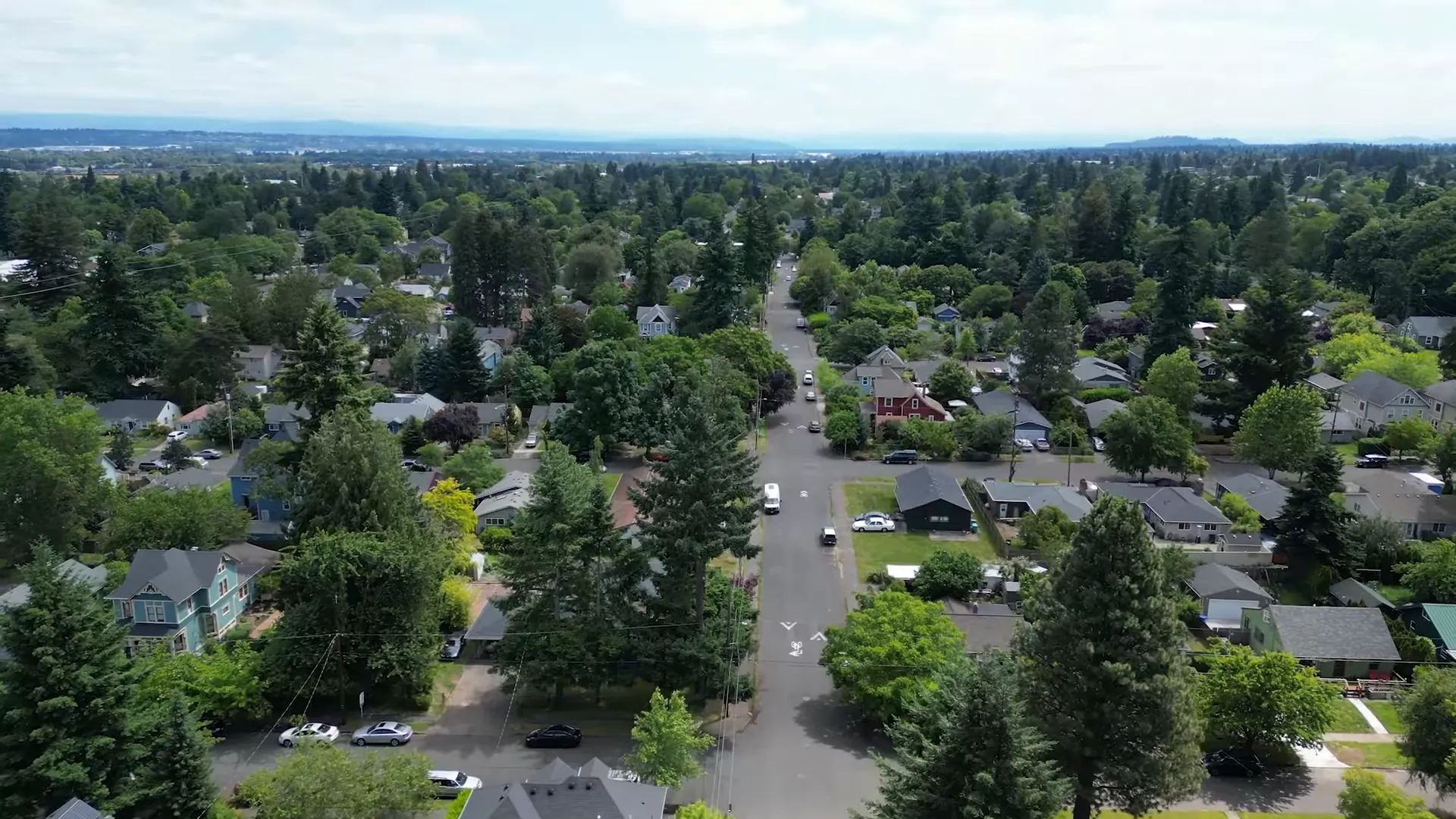
Mental Health: Seasonal Affective Considerations
Seasonal affective disorder (SAD) is a legitimate concern for some. The gray months can feel heavy. For those worried about the mental health implications, practical strategies work: light therapy lamps, planned travel to sunny nearby towns, joining community groups, and building routines that include outdoor time on brighter days. When people talk about pros and cons of Living in Portland Oregon, don't dismiss this—plan for it.
Travel & Day-Trip Advantages (A Big Pro)
One of Portland’s best advantages is geographic variety within a few hours' drive: the Oregon Coast, Mount Hood, the Columbia River Gorge, and Central Oregon’s high desert. You can get a complete climate and landscape change without flying. That makes seasonal burnout easier to manage and gives you a lot to do on weekends.
Politics: Context Is Everything
Politics is a common topic when people research the pros and cons of Living in Portland Oregon. National headlines about protests and mismanagement during the COVID era made waves, but the reality on the ground varies by county and neighborhood. Inner-city Portland (Multnomah County) leans very liberal. Suburbs in Washington County, Clackamas County, and Clark County (Vancouver, WA) tend to be more moderate or conservative.
Most people relocating here buy in suburban areas or new planned developments, not in downtown Portland. So the political climate you see on national news may not reflect the neighborhood where you’ll root your family. Always ask: which county and which neighborhood? That context changes everything.
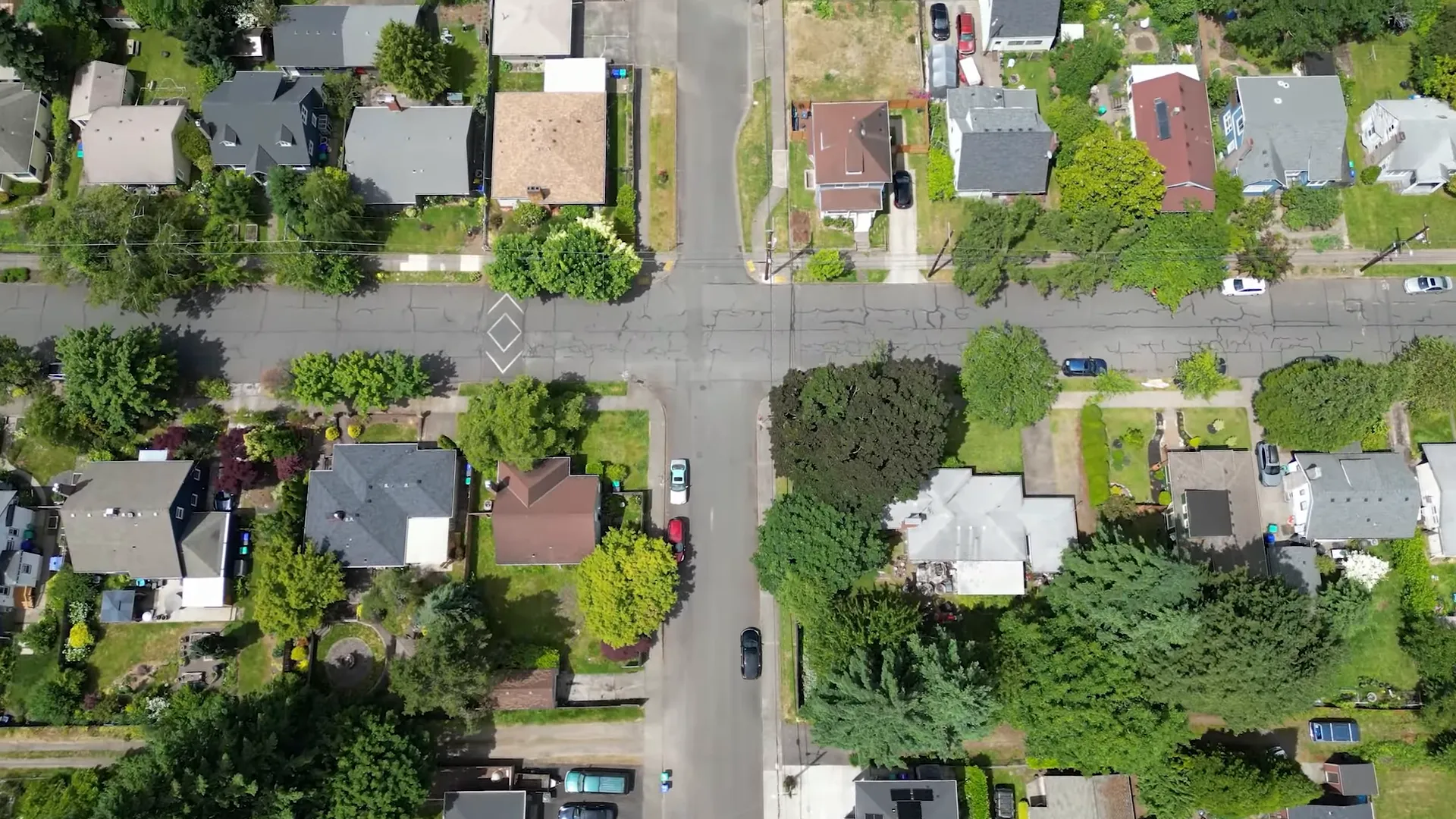
Diversity & Vibe — A Major Pro
Portland’s social fabric is more of a mosaic than a monolith. Almost everyone here is from somewhere else, which creates a more welcoming “melting pot” feel—rare to find folks who are third- or fourth-generation Oregonians still telling newcomers to “get out.” The city has people from many religious and ethnic backgrounds, and that diversity shows up in food, arts, festivals, and schools. The casual vibe—hoodies to blazers—is part of what makes Portland comfortable for many.
Entertainment, Food, and Nightlife
Portland punches above its weight for a midsize city. We have music venues, plays, art scenes, food neighborhoods (North Mississippi, Belmont, Hawthorne, Mississippi Avenue, Alberta, St. Johns) and yes—an excellent coffee, beer, and wine scene. That scene is evolving—many small microbreweries and vineyards are feeling the pressure of inflation and higher operating costs—but there’s still abundant choice.
Safety: Inner City vs Suburbs
When people discuss the pros and cons of Living in Portland Oregon, safety comes up a lot. Inner-city neighborhoods experience typical urban issues—car break-ins, occasional fights, and isolated violent incidents. I won’t downplay that. However, those issues generally do not bleed into many suburban and outlying towns. Places like Hillsboro, Tigard, Sherwood, West Linn, Oregon City, Camas, and parts of Vancouver tend to have markedly lower rates and feel safer for families.
Crime is real but often sensationalized in national media. Compare local crime statistics and neighborhood context rather than headlines. Some areas are safe and quiet; others are urban and energetic with a trade-off in occasional crime-related incidents.
Traffic & Commuting — Real Talk
Traffic has gotten worse over the last 20 years. I-5 and I-205 congestion during commuting hours is real. The worst commutes often come from crossing bridges—especially if you live in Washington (Vancouver) and work on Portland’s west side. The east-west bottleneck through Highway 26 (with its two-lane tunnels) is another choke point, particularly in peak hours.
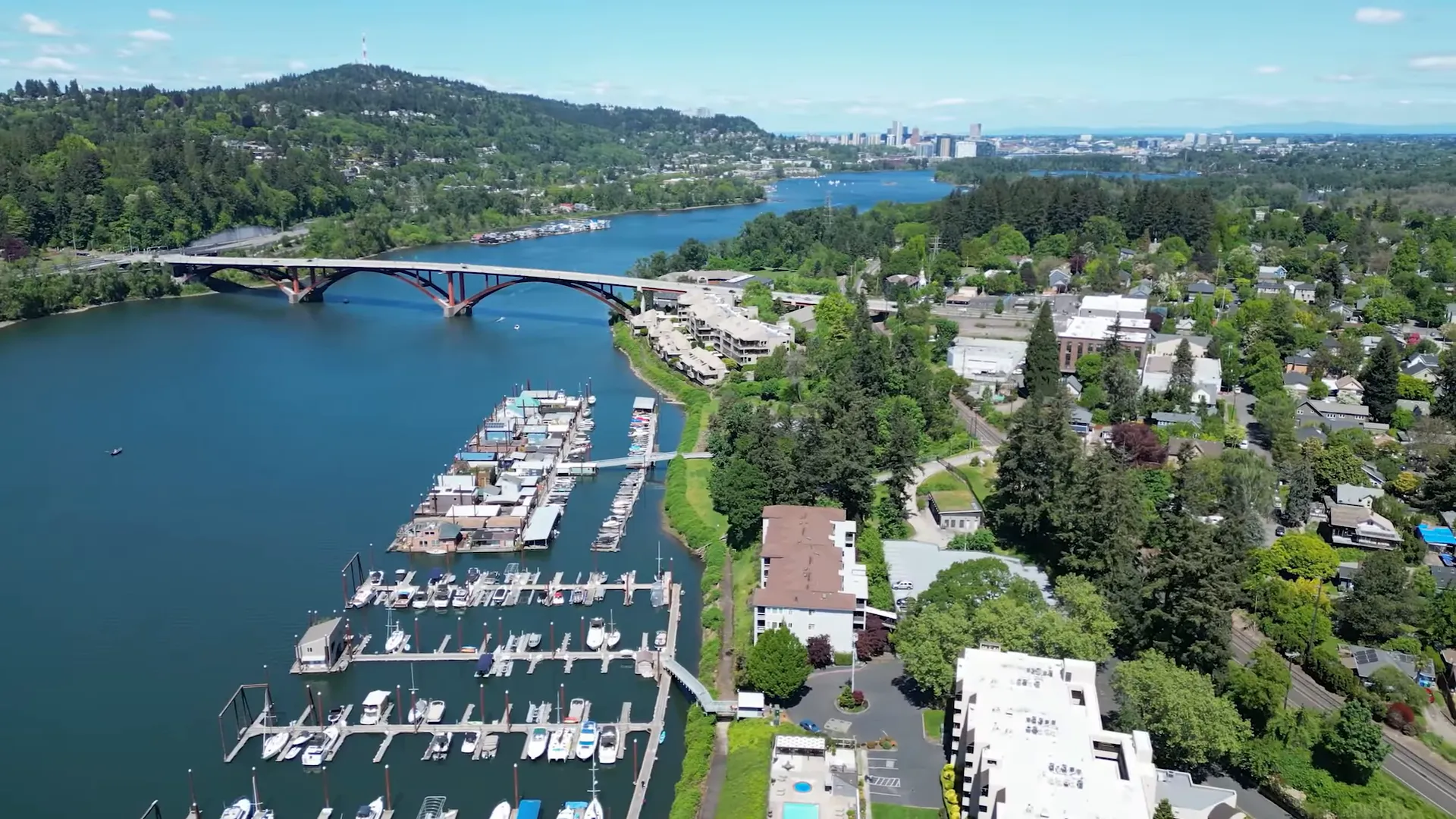
Local commute tips
- Match side of work to side of home whenever possible (work west — live west; east — live east).
- Time trips to travel opposite the main flow—mornings are southbound on I-5, evenings northbound heading home to Vancouver.
- If you’re remote or have a flexible schedule, stagger your day to avoid 8–9 a.m. and 3–5 p.m.
During heavy congestion expect 40–60 minute drives—less if you time things well or come from places with worse traffic (big Southern California cities, Dallas, Houston, for example). Many relocating buyers we work with value the trade-off: a slower commute for better lifestyle in suburbs or a nicer house.
Portland Oregon Real Estate 2025
In 2025 the overall indicators point to a buyer market across many parts of the Portland metro, but micro-markets matter. Some neighborhoods are hot and highly competitive (think Southeast/inner east Portland pockets with charming older homes). Other zones—parts of North Portland, certain suburbs in Vancouver—have more inventory and less competition.
What buyers are actually buying
- New construction — roughly 60% of our relocating buyers are choosing brand-new homes, particularly on the west side developments (e.g., Progress Ridge, Hillsboro, Beaverton).
- Resales — older, quality-built 70s–80s suburban homes remain popular because of low maintenance and great bones.
- Urban homes and condos — options range from modern condos to 100-year-old Portland craftsman-style houses.
There are also targeted incentives being used to spur new supply. The city and state are exploring ways to reduce builder fees so those savings can be passed to buyers. We’ve helped clients get immediate price reductions (we recently negotiated a $40,000 reduction on a brand-new home). But qualifying for those incentives often involves income limits and other rules.
How Buyers Save in Portland: Builder Credits, Rate Buydowns & Incentives
One of the most frequent questions: How are people affording payments? It's a combination of a buyer's market with builder credits, negotiating interest rate buydowns (temporary or permanent), and credits to cover closing costs or upgrades. These credits can save buyers thousands—sometimes tens of thousands—on the purchase.

Practical strategies we use for clients:
- Negotiate builder credits to buy down interest rates—this reduces monthly payment pain.
- Use credits for closing costs so buyers don’t drain their savings.
- Ask for appliances, window coverings, or minor upgrades as part of the deal.
- Structure offers carefully to match the seller’s timeline and the buyer’s financing profile.
Note: some incentives require income limits. If a buyer earns too much, they might not qualify for specific city-subsidized reductions—so planning and strategy are key.
Architecture and Housing Diversity in Portland Oregon
One of the pros of Living in Portland Oregon is architectural variety. Within a short drive you’ll find modern condos, century-old Bungalow and Craftsman homes, 70s–80s suburban builds with durable construction, infill developments, multi-family units, and new planned single-family communities. That diversity means there’s something for nearly every taste and budget.
Best Portland Neighborhoods: Differences and Where to Live
Choosing a neighborhood often depends on three things: commute tolerance, lifestyle preferences, and school needs.
Inner city (North, Northeast, Southeast Portland)
- Pros: Walkability, food and entertainment, character homes, strong local culture.
- Cons: Higher noise, occasional crime, less inventory in some high-demand pockets.
West side suburbs (Hillsboro, Beaverton, Tigard)
- Pros: New construction inventory, family-friendly neighborhoods, quality schools and parks.
- Cons: Longer drive if working downtown; new developments can feel less historic.
East side & closer-in suburbs (Gresham, Clackamas)
- Pros: More affordable housing options, access to outdoor recreation, often shorter commutes if you work on the east side.
- Cons: Limited throughways—highway 26 can be a bottleneck to the west side.
Vancouver, Washington / Clark County
- Pros: Lower sales tax (WA), often better performance during snow events, good family neighborhoods.
- Cons: Bridge crossings add commute time if you work in Portland; different school systems to evaluate.
When to Visit Portland Before Moving
If you’re planning a visit to evaluate the pros and cons of Living in Portland Oregon, do this:
- Visit twice: once in summer (or autumn September–November for great weather and fewer crowds) and once in winter to see the landscape in the rainy season.
- Pick neighborhoods for a full-day sample—explore restaurants, parks, commute routes, and grocery options.
- Ask a local agent to build your itinerary—our team creates custom touring agendas so you can explore neighborhoods, experience the lifestyle, and understand Portland’s traffic patterns before you move.
How Our Portland Real Estate Team Supports Relocations
Relocating can be stressful; uncertainty drives anxiety. We work with buyers early—Zoom calls to run the numbers, planning for financing strategies, understanding what incentives a buyer may or may not qualify for, and curating neighborhood tours. We’ve refined a system over almost a decade to streamline the process and get buyers into homes with confidence.
Final Thoughts on the Pros and Cons of Living in Portland Oregon
Here’s a quick summary of the top pros and cons to keep in mind:
- Pros: Geographic variety, strong arts/food scene, diversity of neighborhoods, good airport access, architectural options, and buyer opportunities in 2025 with builder incentives.
- Cons: Gray winter months (risk of SAD for some), increasing traffic, occasional urban crime in specific pockets, and qualifying rules for some incentive programs.
Ultimately, whether the pros and cons of Living in Portland Oregon tip in your favor depends on your non-negotiables: commute tolerance, weather preferences, and what you want from your community. If you value outdoor access, culture, and a varied housing market, Portland offers a lot. If you can’t stand long gray stretches and need predictable clear weather year-round, you’ll want to plan escapes or consider another region.
FAQs About Pros and Cons in Living in Portland, Oregon
Is Portland safe to live in?
A: Safety depends on the neighborhood. Inner-city pockets have more urban issues; suburbs and many outlying towns are quiet and family-friendly. Research specific neighborhood statistics and visit during different times of day.
Is Portland more liberal or conservative?
A: Inner-city Portland is generally liberal. Many suburbs and Clark County on the Washington side lean more conservative or moderate. Your experience will depend on which county and neighborhood you choose.
Is it a buyer or seller market in 2025?
Broadly a buyer market, but micro-markets differ. Some highly desirable pockets still see competition and high sale prices. Work with an agent who tracks local micro-market trends.
Can Portland buyers get discounts or incentives on new construction?
Yes—builder credits and city/state incentives can translate into price reductions or credits to buy down rates or cover closing costs. Income and qualification rules apply. Planning is essential.
How bad is traffic in Portland?
Commutes during peak times can be 40–60 minutes in congested corridors; timing and route choice make a big difference. If you work remotely or have flexible hours, you can dramatically reduce commute times.
When should I visit to get the best sense of Portland?
Visit twice if possible—once in September–November for great weather and lower crowds, and once in winter to understand the rainy season. If you can’t visit twice, pick fall for the best compromise.
How do you help people save tens of thousands?
We negotiate builder credits, structure interest rate buydowns, apply credits to closing costs, and find grants or incentives when buyers qualify. The right plan before you buy lets us maximize savings legally and ethically.
Wrapping Up: Is Portland the Right Place for You?
If you've been searching for the pros and cons of Living in Portland Oregon, I hope this guide gives you the local color and practical advice you need. Portland is a multifaceted metro—lovely summers, gray winters, rich culture, mixed politics, and a housing market full of opportunity if you plan the move well.
If you’re considering relocating, reach out for a planning call. We’ll help you map neighborhoods, run mortgage scenarios, and create a strategy that fits your budget and lifestyle. Moving here is exciting—and with a little planning, it can be an amazing decision for you and your family.
Welcome to your ultimate guide for everything Portland!
From neighborhood insights to local tips and real estate advice, our blog covers everything you need to know about life in Portland.
